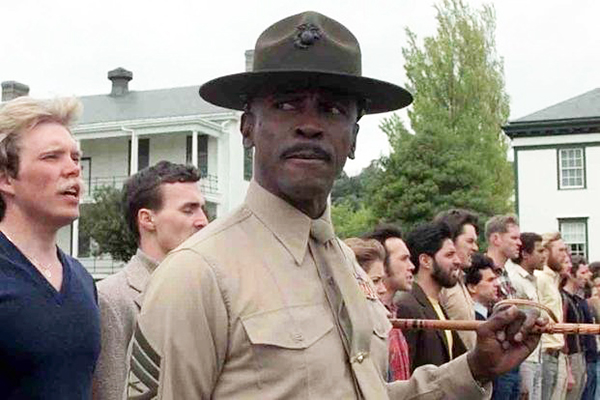By Anita Bennett
Contributing Writer
LOS ANGELES — A trailblazer who broke barriers in Hollywood, Louis Gossett Jr. is being remembered as a “true legend.”
Gossett died on March 29 in Santa Monica at age 87.
“It is with our heartfelt regret to confirm our beloved father passed away this morning,” the actor’s family said in a statement. “We would like to thank everyone for their condolences at this time. Please respect the family’s privacy during this difficult time.”
His first cousin told the Associated Press the actor should be remembered for standing up for civil rights and for fighting against racism.
“Never mind the awards, never mind the glitz and glamour, the Rolls Royces and the big houses in Malibu,” Neal L. Gossett said. “It’s about the humanity of the people that he stood for.”
The actor landed his first TV role in the 1950s. He would go on to have a successful career on television, stage and film.
“Louis Gossett, Jr. was one of the finest examples of utilizing all of his skills to create an outstanding career and legacy,” said Gil Robertson, president and co-founder of the African American Film Critics Association.
Gossett took home an Emmy Award in 1977 for his performance in “Roots” as Fiddler — an enslaved musician — who “fiddled” his way out of the fields.
The groundbreaking ABC miniseries also starred Ben Vereen, LeVar Burton, John Amos, Madge Sinclair and Leslie Uggams.
In a statement on X (formerly Twitter) LeVar Burton described Gossett as “one of the best to ever do it.”
Gossett would go on to become the first Black man to win a best supporting actor Oscar in 1983, for his role as a Marine drill instructor in “An Officer and a Gentleman” opposite Richard Gere.
“More than anything, it was a huge affirmation of my position as a Black actor,” Gossett wrote in his memoir, “An Actor and a Gentleman.”
In a widely distributed statement, Gere described Gossett as “a tough guy with a heart of gold.”
“He stayed in character the whole time,” Gere said. “He was the drill sergeant 24 hours a day, and it showed clearly in his performance. He drove every scene he was in.”
Louis Cameron Gossett was born on May 27, 1936, in the Coney Island section of Brooklyn, New York.
He took an early interest in acting and made his stage debut in a high school production of “You Can’t Take It with You.”
After high school, he attended New York University on a basketball and drama scholarship. After college, he found work on Broadway.
Gossett appeared in the stage production of “A Raisin in the Sun” about a Black family’s experiences in Chicago, and in 1961 he co-starred in the film adaptation alongside Sidney Poitier, Claudia McNeil and Ruby Dee.
He built an enviable resume when there were limited opportunities for Black actors.
“He obviously knew the limitations that could potentially block his ability to support himself in one way as an actor, so he utilized all of his talents to be working as a voiceover artist, or singing on stage or television or in film, regardless of what the venue was,” Robertson said.
Among Gossett’s many television roles were parts in “The Rockford Files,” “Good Times,” “The Jeffersons,” “Lackawanna Blues,” “Return to Lonesome Dove,” “Touched by an Angel,” “Extant,” “Watchmen,” and “Kingdom Business.” He also directed television shows and appeared in the films “The River Niger” (1976), “Jaws 3-D” (1983), and “The Cuban” (2019).
Most recently, he played the cantankerous Ol’ Mister alongside Colman Domingo’s Mister in “The Color Purple” remake (2023).
Domingo paid tribute to Gossett on Instagram.
“We lost a true great. A true legend. What an honor to have been able to give him his flowers on his last day of his final film ‘The Color Purple’ where he played my father,” Domingo said in a caption of a photo of Gossett on the film’s set.
Gossett was diagnosed with prostate cancer in 2010. He went public with his diagnosis to encourage other Black men to seek preventive examinations.
The actor was also vocal about racism and established the Eracism Foundation to combat racism.
Ayuko Babu, co-founder of the Pan African Film and Arts Festival, said Gossett was a champion of Black films.
“A whole bunch of people hear about the Pan African Film Festival and don’t ever come. Don’t ever stop, don’t ever pay attention,” Babu said in a statement. “Lou not only stopped and paid attention, he came down to see what was going on.”
The festival honored Gossett with a Lifetime Achievement Award in 2006.
Louis Gossett Jr. is survived by his sons Satie, who is a producer-director; and Sharron, who is a chef.










